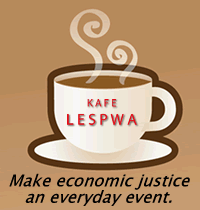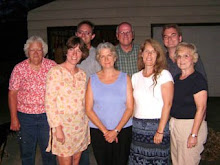--Frank

Support for Ohio's death penalty is crumbling. Over the past month, we've witnessed remarkable activity by high profile individuals who are questioning whether Ohio is being well served by the death penalty. The most recent round of criticism came from Ohio Supreme Court Justice Paul E. Pfeifer on January 19th when he said, "I think the best thing is for the governor to commute them all...and say we don't need the death penalty in Ohio any longer."
On January 25th, Terry Collins, retired director of the Ohio Department of Rehabilitation and Correction, who witnessed 33 executions during his career, wrote an opinion editorial in the Columbus Dispatch, saying, "The reasonable course of action for state officials is to begin to have serious and thoughtful conversations about whether Ohio's death penalty remains necessary, fair and effective. My experience tells me that our justice system can be even more effective and fair without death rows and the death penalty."
A flurry of newspaper editorial boards across the state has echoed the sentiments of Justice Pfeifer and Terry Collins. The Cleveland Plain Dealer wrote on January 30th, "Ohio corrections officials are still having the wrong discussion about the death penalty." The Board went on to write that commuting all death sentences would, "bring closure to the families of victims who now must endure endless appeals...and it would guard against the chance of an innocent person being put to death."
The Toledo Blade Editorial Board said on January 31st, "It is reasonable to ask whether Ohio has applied the ultimate penalty fairly and enforced it humanely. If the answer is no, as it appears to be, then the time to debate how to improve the system is now, before anyone else is executed."
Matthew Mangino, a former district attorney, wrote an editorial in the Youngstown Vindicator on February 6, 2011, saying, "After years of reviewing death penalty verdicts rendered through a statute he helped write, Justice Pfeifer wrote, 'I have come to the conclusion that we are not well served by our ongoing attachment to capital punishment.'"
One of the most telling statements came from John Murphy, executive director of the Ohio Prosecuting Attorneys Association in an op-ed to the Cleveland Plain Dealer when he said, "If we are to seriously discuss the death penalty and related issues, perhaps we could first be clear about what the process is now and what is happening under current law." Mr. Murphys comments suggest there is a lack of understanding by, presumably, the individuals for whom he speaks (county prosecutors), as to how the current death penalty is being administered or applied.
This is eye-raising stuff.
All of the statements, opinions and editorials support the notion that momentum for change to Ohio's death penalty is building like never before. We are in the beginning stages of a statewide discussion or debate about the usefulness of Ohio's death penalty. In the coming weeks we will see legislation introduced by Representatives Ted Celeste (D) and Terry Blair (R) that will repeal the death penalty. When we know more about the proposed bill, we will send you more specifics.
OTSE's staff is digging in and preparing to turn the tide in Ohio. We invite you to join us in this work because we need all hands on deck. We need you to let us know what you're willing to do to help us repeal Ohio's death penalty. Some of the areas we need your help are the following:
• contact your state representative and senator and ask for a meeting (we can help).
• volunteer to write a letter to the editor of your local newspaper (we can help with this one, too).
• invite our staff and a speaker to your community group, faith community, school, etc.
• add your name to our sign-on letter complimenting the repeal bill.
• make your contribution to our repeal campaign.
If you're ready to join us in the campaign to abolish Ohio's death penalty, get in touch with our office today at 513-543-1585 or 216-688-1180!
We need your support now more than ever. Can we count on you?
I look forward to sharing more news with you in the coming weeks about our campaign to repeal the death penalty.
Regards,
Kevin Werner
Executive Director
P.S. If you're ready to make a contribution to support our campaign to repeal Ohio's death penalty, send your check made payable to "OTSE" to 215 E. 14th Street, Cincinnati, OH 45202 today. You can also make a donation through the PayPal feature on our website by clicking on this link. Thank you!














